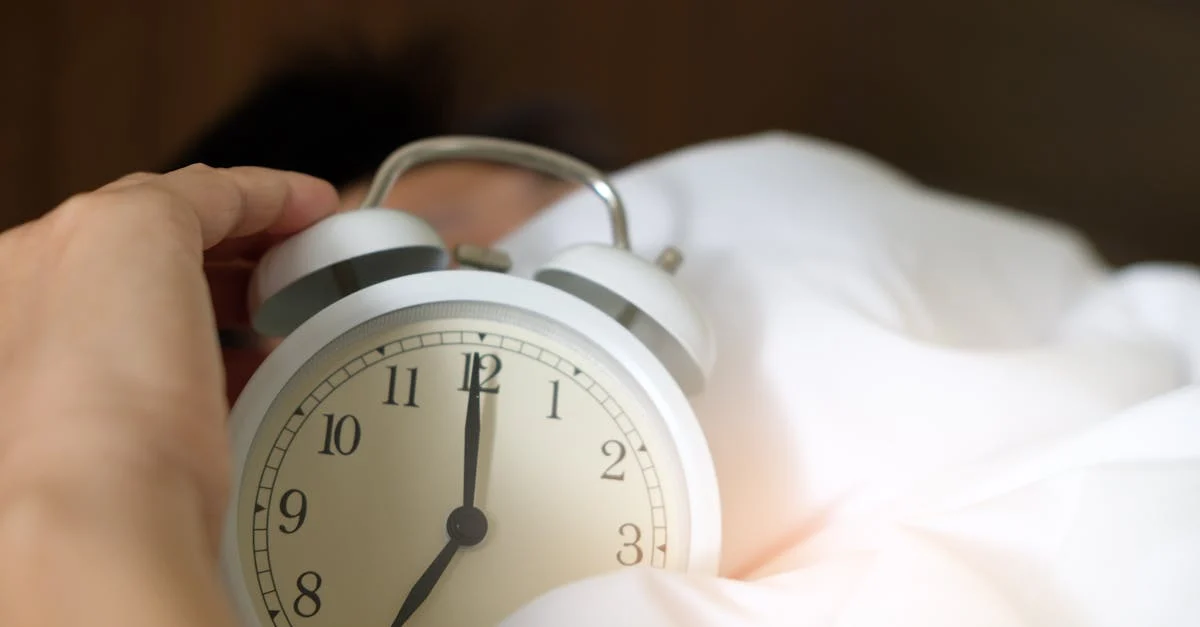In today’s fast-paced world, the importance of sleep and recovery often gets overlooked. However, a well-rested mind is crucial for nurturing mental health resilience. A good night’s sleep is not just about recharging the body; it plays a vital role in emotional regulation and cognitive functioning. By prioritizing sleep & recovery, individuals can enhance their overall mental well-being and develop effective coping strategies for life’s challenges. Understanding the connection between quality rest and mental health is essential for anyone looking to cultivate a balanced and fulfilling life.
Main Points
- The relationship between sleep & recovery and emotional stability.
- How restorative sleep enhances cognitive abilities.
- Effective sleep & recovery techniques to boost mental resilience.
- The long-term mental health benefits of prioritizing rest.

The Science Behind Sleep: Understanding Its Impact on Mental Health
Understanding the connection between sleep and mental health is crucial. Sleep is a fundamental component of recovery, influencing emotional resilience and cognitive functions. Insufficient sleep can heighten anxiety and depression, complicating our daily lives. Embracing effective Sleep & Recovery techniques can transform our approach to wellbeing. Here are a few tips:
- Establish a consistent bedtime: Following a regular sleep schedule enhances sleep quality.
- Create a relaxing environment: Dimming lights and reducing noise can promote better relaxation before sleep.
- Limit screen time: Exposure to screens before bedtime disrupts melatonin production, impairing sleep quality.
Indeed, exploring these Sleep & Recovery strategies reveals their profound benefits on mental clarity and emotional health. Adopting these habits fosters a more balanced life, enhancing overall productivity and positivity.
Recovery Techniques: Enhancing Sleep Quality for Improved Resilience
To bolster resilience, it’s crucial to implement effective Sleep & Recovery techniques. One often overlooked method involves establishing a consistent sleep schedule. Going to bed and waking up at the same time daily encourages your body’s natural rhythm. Additionally, creating a calming bedtime routine can significantly enhance sleep quality, contributing to a more restorative experience. Avoiding screens before bedtime is particularly important, as blue light can disrupt melatonin production. Remember, prioritizing these Sleep & Recovery strategies leads to improved overall well-being.
Key Techniques
| Technique | Benefits |
|---|---|
| Consistent Sleep Schedule | Regulates body clock |
| Calming Routine | Enhances relaxation |
| Screen-Free Time | Improves melatonin levels |
In conclusion, understanding the interplay between these Sleep & Recovery strategies can lead to better resilience. Each technique offers unique advantages, collectively fostering a healthier, more balanced lifestyle.
How Sleep Disturbances Affect Emotional Well-Being and Adaptability
Sleep disturbances significantly impact our emotional well-being and adaptability in daily life. When sleep is interrupted, feelings of anxiety and irritability often intensify. Consequently, individuals may struggle to cope with stressors effectively. Moreover, poor sleep can hinder our ability to process emotions, leaving us vulnerable to mood swings. This depletion not only affects personal relationships but can also impair decision-making. Thus, prioritizing sleep and recovery is essential for fostering resilience and emotional balance.
The Role of Sleep Hygiene in Fostering Mental Health Resilience
Maintaining effective Sleep hygiene is crucial for enhancing mental health resilience. Having a well-structured bedtime routine significantly influences overall well-being. When individuals cultivate proper sleep practices, they enhance their mood and reduce anxiety. Adequate rest, paired with these practices, allows the mind to recover, resulting in improved cognitive performance and emotional stability. Consider these essential points:
- Consistency: Going to bed and waking up at the same time fosters a natural sleep cycle.
- Environment: Creating a dark, quiet sleeping space enhances the quality of sleep, making it restorative.
- Limiting Stimulants: Reducing caffeine intake before bedtime can promote better sleep quality.
Each of these factors contributes to a stronger foundation for mental health, ensuring that individuals can handle life’s challenges with resilience and strength.
Integrating Mindfulness and Relaxation for Better Sleep and Recovery
Incorporating mindfulness into your evening routine can significantly enhance your Sleep quality and overall Recovery. Through techniques such as deep breathing and guided imagery, one can quietly transition from a hectic day to a peaceful night. These practices not only relieve stress but also cultivate an awareness that promotes a restful state. By fostering relaxation, you unlock the ability to achieve deeper sleep cycles, thus improving energy levels and concentration the following day. It’s a delicate balance that, when mastered, yields remarkable benefits.
Practical Strategies for Prioritizing Sleep to Strengthen Mental Resilience
Sleep plays a crucial role in enhancing mental resilience. To prioritize sleep effectively, establish a consistent routine. Going to bed and waking up at the same time daily can help regulate your circadian rhythm. Additionally, create a calming bedtime environment by minimizing noise and light. Mindfulness techniques may seem beneficial, as they contribute to relaxation before sleep. Remember, quality sleep is essential for emotional stability and cognitive function.
“Sleep is the golden chain that ties health and our bodies together.” – Thomas Dekker
Furthermore, avoid stimulating activities before bedtime. Limiting screen time and caffeine intake can also improve your overall sleep quality. By focusing on these strategies, you enhance your capacity to cope with daily stressors, thus strengthening your mental resilience.
Conclusion
In our fast-paced world, prioritizing sleep has become essential for maintaining mental health. We often overlook how restorative sleep can significantly impact our recovery. Adequate rest enables our minds to process emotions, enhancing overall emotional resilience. Consequently, a healthy sleep pattern can lead to improved cognitive function and better stress management strategies. As we navigate the challenges of daily life, we must remember that investing time in quality sleep is an investment in our mental well-being. By embracing healthy sleep habits, we can foster our recovery and cultivate a more balanced mental state, ultimately enriching our lives in countless ways.
Frequently Asked Questions
How does sleep affect mental health?
Sleep plays a crucial role in regulating mood and cognitive function. Poor sleep can lead to increased anxiety, depression, and decreased overall mental well-being.
What are the signs of sleep deprivation?
Common signs of sleep deprivation include fatigue, irritability, difficulty concentrating, and an overall decline in mood and motivation.
How much sleep is necessary for optimal mental health?
Most adults require between 7 to 9 hours of sleep per night for optimal mental health. However, individual needs can vary.
Can improving sleep quality enhance mental health?
Yes, improving sleep quality can significantly enhance mental health by reducing stress, improving mood, and enhancing cognitive functions.
What strategies can help improve sleep for better mental health?
Strategies include maintaining a regular sleep schedule, creating a relaxing bedtime routine, reducing screen time before bed, and making your sleep environment comfortable and conducive to rest.



